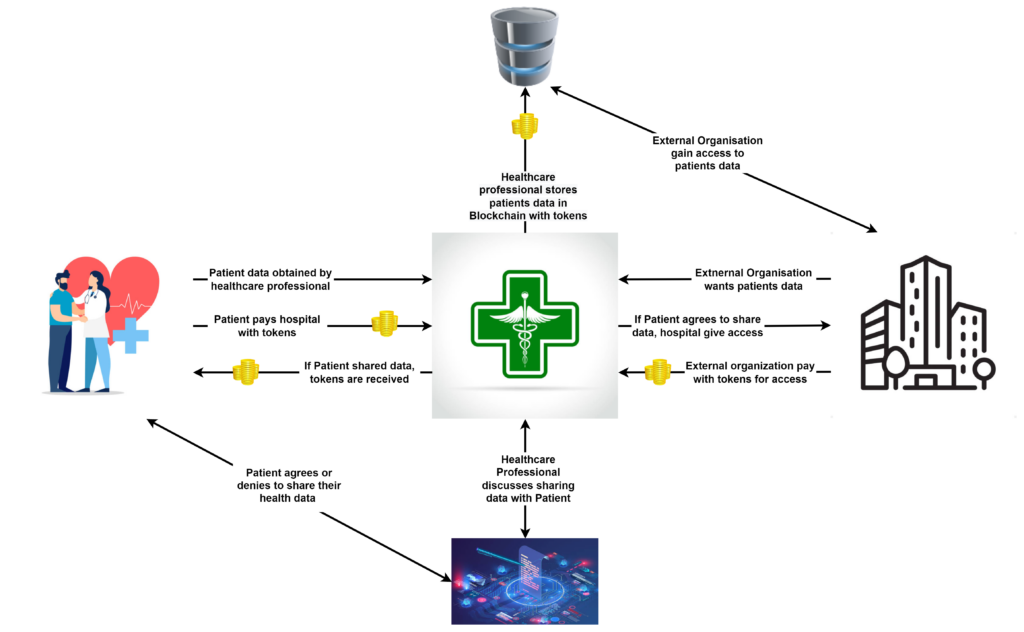This project consisted in developing a framework for accessing and exchanging patient data using tokenisation, by placing patients’ data into a decentralised database that could only be accessed through tokens.
The proposed framework would enable organisations such as hospitals, public health authorities, private doctors, and insurance companies to access patients’ health data on a decentralised database strictly upon having obtained the authorisation to access it. Therefore, when the patient would authorise the sharing of their data, this would initiate a transaction between the external party and the patient, whereby the patient would receive tokens. The external party would in turn receive access to the individual patient’s data.
Tokens could be used by patients to pay for the hospital service. The patient could acquire tokens by purchasing them, collect tokens from a previous visit or else they could gain tokens by sharing their data with external parties. The accompanying image describes the different interactions between the hospital, patient and external organisations, and shows when tokens could be exchanged and used.
Besides tokenising patients’ health data and giving them an incentive for sharing their data, the proposed framework would also allow patients to gain complete control over their data. With the use of smart contracts, the patient would be able to decide with whom their data could be shared and to specify to which health data the external entity would be allowed access. This would enable patients to monitor who is accessing their data.
This project has also sought to create a custom smart contract for healthcare professionals to view patients’ data. The smart contract was set up so that every time the patients’ data would be updated or modified after a hospital visit, a new asset would be created to keep any new information distinct from one visit to another, and for the patient to be able to view their data more clearly.
A survey was published to explore the opinion of the general public regarding healthcare data, and to find the different uptakes of tokens. This survey reached 151 persons. A separate survey was circulated among healthcare professionals only, and its purpose was to establish how they use health data in their work, and how the introduction of tokenised health data would affect them. The latter survey reached 46 professionals.
The premise for this research was that tokenising healthcare would greatly enhance healthcare systems. The data stored on the blockchain would be more secure, while the smart contracts would be conducive to efficient data sharing. Smart contracts could also allow the patient to decide which data may be shared, and also be kept updated as to which entities would have gained access to their data.

Course: B.Sc. IT (Hons.) Computing and Business
Supervisor: Dr Lalit Garg
